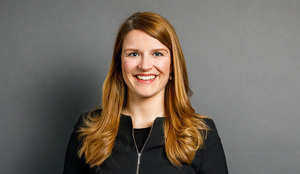New Decision: Higher Regional Court Düsseldorf on Second Medical Use Patents
In 2017, the Higher Regional Court Düsseldorf first iterated new liability criteria with respect to Second Medical Use Patents (cf. decision Östrogenblocker of 5 May 2017, docket no. I-2 W 6/17). Accordingly, infringement could also be assumed apart from the conventional “purposeful preparation” situation (in German: “sinnfälliges Herrichten”). In its latest decision of 9 January 2019, the Higher Regional Court Düsseldorf confirmed the criteria it had developed and provided some insight as to how these should be interpreted (docket no. I-2 U 27/18). Against this backdrop, Bird & Bird was successful in fighting a complaint against its client, which was dismissed both in first instance and now also on appeal.
The “new” liability criteria
Under the “new” criteria by the Düsseldorf Courts, infringement of a second medical use claim can not only be assumed in case of a “purposeful preparation”. Rather, infringement is also possible under the following criteria:
- Suitability of the product for the patented use
- Exploiting of circumstances in a way that a use according to the patent occurs.
For this the following is necessary:
- Sufficient, not mere singular use according to the patent
- Knowledge or ignorance against good faith
Background and Decision
These criteria have been discussed internationally, such as lately in the UK Supreme Court decision in re Pregabalin. They were developed by the Higher Regional Court Düsseldorf in preliminary injunction proceedings (cf. docket no. I-2 W 6/17), preceding the main proceedings that now led to the decision of the Higher Regional Court Düsseldorf. As said request for a preliminary injunction was dismissed due to lack of (timely) urgency, patentee initiated an action on the merits before the Regional Court Düsseldorf.
Plaintiff, the patentee, sued several generics companies, one of which was defended by Bird & Bird (as already in the preliminary injunction proceedings). The case concerns a patent claiming the use of a compound in the treatment of breast cancer. The Higher Regional Court Düsseldorf applied a narrow understanding to the patent, which was indicated by the claim language and the description and which was in line with the previous EPO-decision confirming validity.
In its decision that was issued on 9 January 2019, the Higher Regional Court confirmed the applicability of the “new” liability criteria. However, Plaintiff was not able to show that infringement actually occurred in a sufficient scope. Already in first instance, the Regional Court Düsseldorf had dismissed the complaint for this reason (judgment of 5 July 2018, docket no. 4c O 46/17). This decision was now confirmed on appeal.
Guidelines that can be taken from the new decision
In its ruling, the Higher Regional Court provided the following, more general guidelines:
- Relevance of subjective criterion: Just like in cases of a purposeful preparation, it is not necessary that the actual use is only or almost only the patented use. It is rather decisive that Defendant safely knows (or ignores against good faith) that a patented use will happen with the product. If a company still acts in such a scenario, it has to be treated as if it has purposefully prepared the product for the patented use.
- Sufficient scope increased by number of verifiable cases: Therefore, it needs to be ascertained by the Court that there is a sufficient scope of the patented use (cf. criterion 2.a) and that these circumstances cannot have remained hidden to the generics company. In this respect, the number of verifiable use cases naturally increases the chance of a court ruling. On the other hand, solely singular uses regularly cannot constitute a sufficient use.
- Paramount advantages of patented use: A further liability scenario can be assumed if there are paramount advantages of the patented use in comparison to other therapies, which virtually challenge to use the product in the patented way.
- Time of oral hearing: Even if, in the past, a use according to the patent may have been sufficient, this could only be relevant for damages and accounting claims. An injunction can only be issued if a sufficient scope of use can be verified at the time of the oral hearing.
Consequences in the present case
In the case at hand, Plaintiff could not provide the necessary proof for a sufficient scope of use according to the patent. The statements of the Higher Regional Court regarding the data can be summarized as follows:
- For the patient category that was held to be relevant by the Higher Regional Court, at the most 7% of patients would fall under the patented scenario. The Court held that in this particular matter such a single-digit-number would not be enough to constitute a sufficient scope as per the patent. It has to be noted though, that the data provided by Plaintiff even showed a decreasing trend (0.0% for the latest time frame).
- With respect to another patient group, which related to 1.9% of the patients in the latest time frame, the Higher Regional Court also confirmed that this number would be “completely unsuitable” to verify a sufficient scope of use.
Summary: data should be kept up to date
It is clear that the liability criteria from the Düsseldorf Courts are established jurisprudence. The Higher Regional Court Düsseldorf has now shed some more light as to its understanding of these criteria. It may be harder to prove infringement in case the data provided only show single-digit numbers of a patented use. However, this is – of course – can only be assessed on a case-by-case basis and should not be seen as a “clear cut” rule. Importantly though, the data should to be up-to-date and represent the situation at the time of the oral hearing. Since an off-patent use is still possible, typically the courts won’t grant a full injunction, but would rather order the defendant to take active measures to ascertain that the product is not used in the patented manner.
If you would like to learn more about second medical use patents in Germany, please contact Oliver Jan Jüngst, Anna Wolters-Höhne and Annika Schneider.

